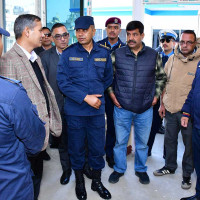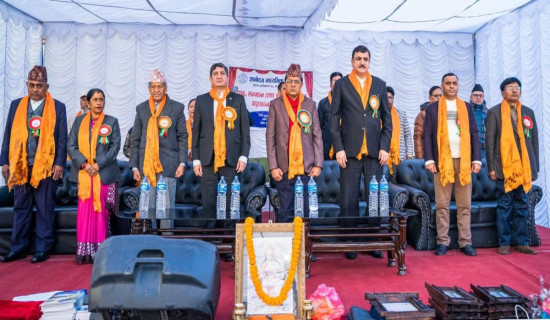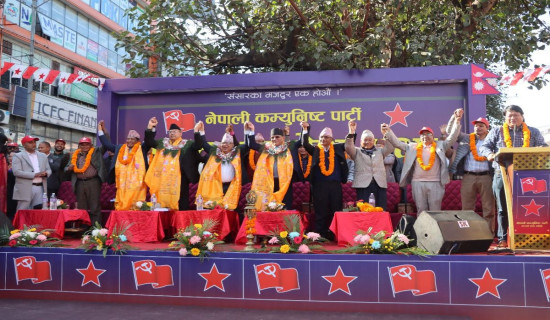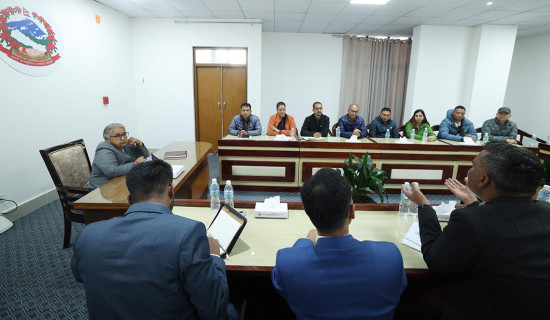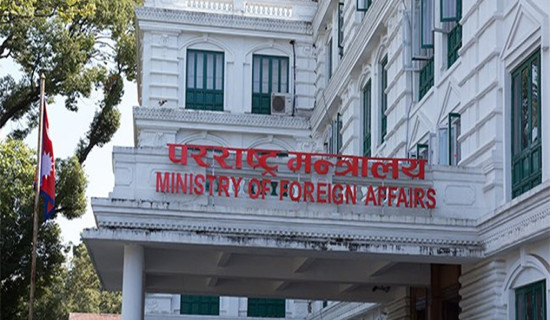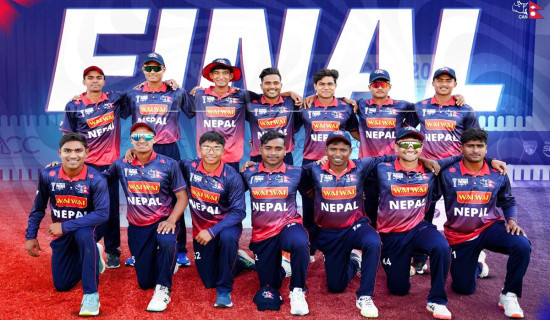- Monday, 1 December 2025
Trans-Himalayan Forum kicks off in Kathmandu
BY A STAFF REPORTER, Kathmandu, Nov. 7 : The third Trans-Himalayan Forum on Communication and Social Development opened in Kathmandu on Friday, organised by the University of Electronic Science and Technology of China (UESTC), Kangba TV (China), Tribhuvan University (Nepal), and Himalaya Television (Nepal).
The event, held under the theme ‘Peripheral Digital Communication and Regional Public Governance’, aims to address common challenges through digital innovation and regional collaboration.
The forum draws attention to the increasing importance of strengthening cooperation among Trans-Himalayan nations in light of complex global dynamics. These countries, sharing geographical and cultural ties, face challenges such as climate change, bio-diversity loss, water security, and sustainable development, the organisers said in a statement.
The forum seeks to use digital tools and academic dialogue to develop practical solutions and promote regional stability.
Over 150 scholars and practitioners from nine countries, including China, Nepal, the USA, India, Bhutan, Bangladesh, Pakistan, Sri-Lanka, and Japan, are participating in the forum. The event, which received more than 60 academic papers, coincides with the 70th anniversary of China-Nepal diplomatic relations and the 75th anniversary of China-India ties, adding historical context to the discussions.
A key highlight of the forum was the awarding of the ‘Research Centre for Digital and Intelligent Public Governance in the Pan-Himalaya Region’, a collaborative academic institution established by UESTC and TU.
The forum featured keynote addresses on regional issues. Professor Manukonda Rabindranath from Jawaharlal Nehru University (India) discussed AI-driven fact-checking tools, while Dawa Penjor from Bhutan presented the ‘Gelephu Mindfulness City’ model.
Likewise, Professor Chen Changfeng from Tsinghua University explored the impact of algorithms on societal cognition. Women’s empowerment also emerged as a key theme, with speakers such as Deepika Pant from India and Qimi Wengmu from Kangba TV highlighting the role of women in regional resilience and media.
Experts called for greater regional integration as well as the role of the media in bridging cultures. The Vice-Chancellor of the TU Prof. Dr. Deepak Kharel emphasised the importance of evidence-based academic exchanges in light of shifting geopolitical dynamics.
The programme also featured book exhibition on China’s development practices and photo exhibition documenting the region’s customs and landscapes, contributing to cultural exchange. The forum marks the third in a series of Trans-Himalayan Forums, continuing efforts to strengthen academic and people-to-people connections across the region.

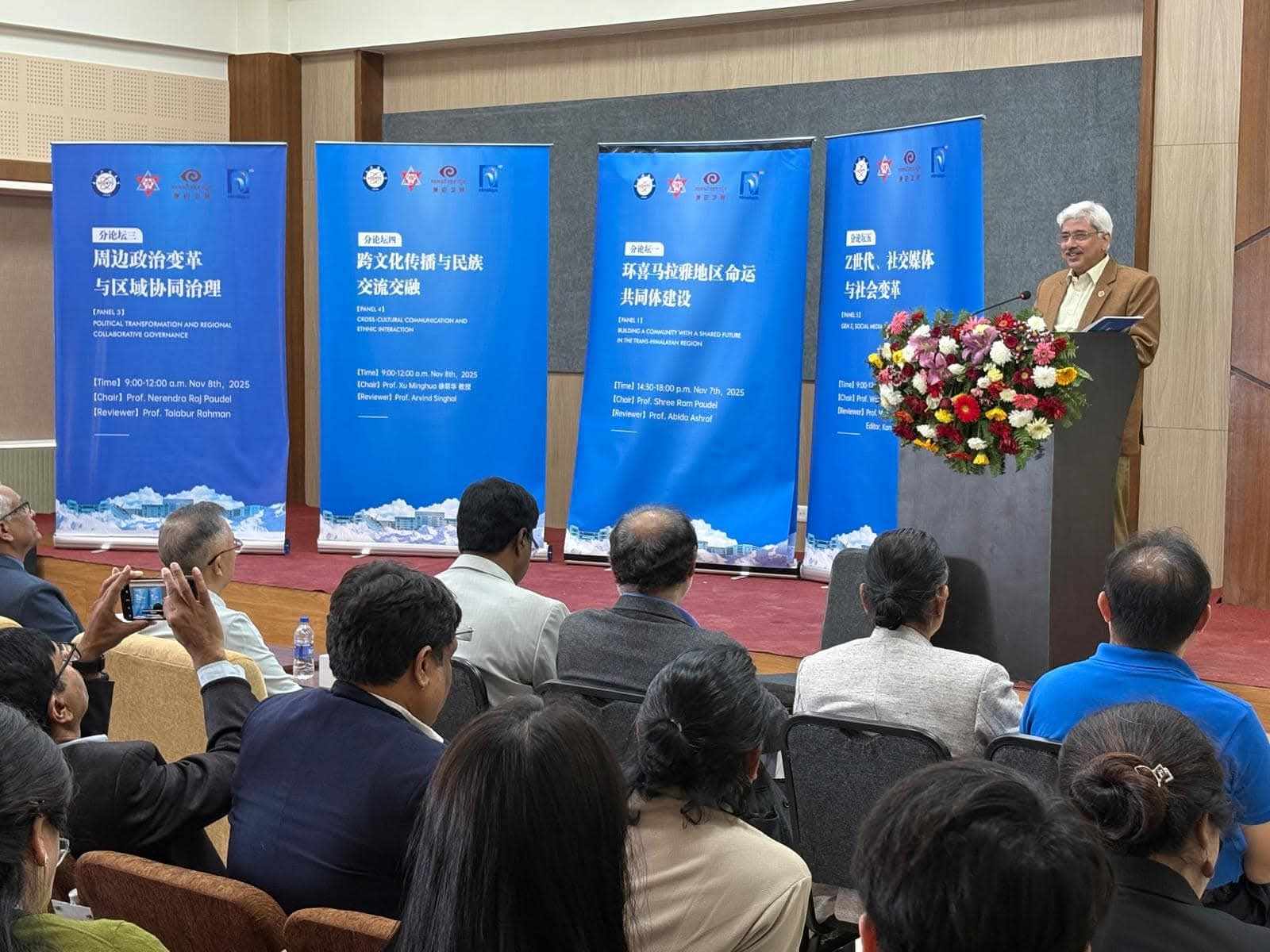


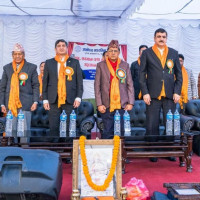
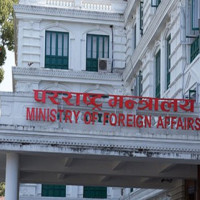
-original-thumb.jpg)

